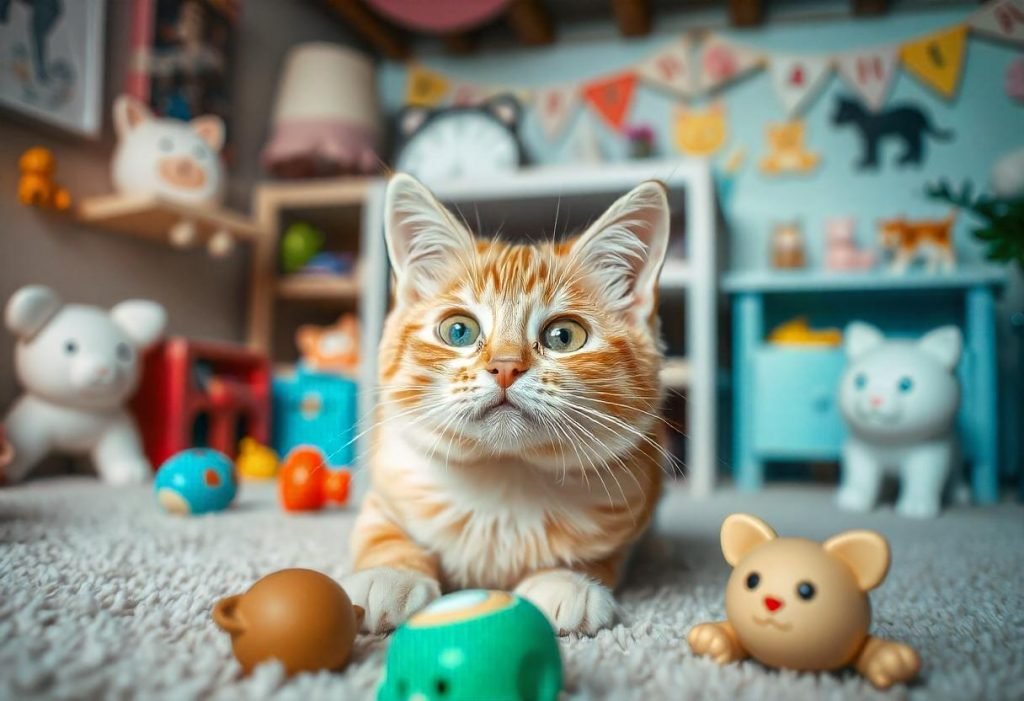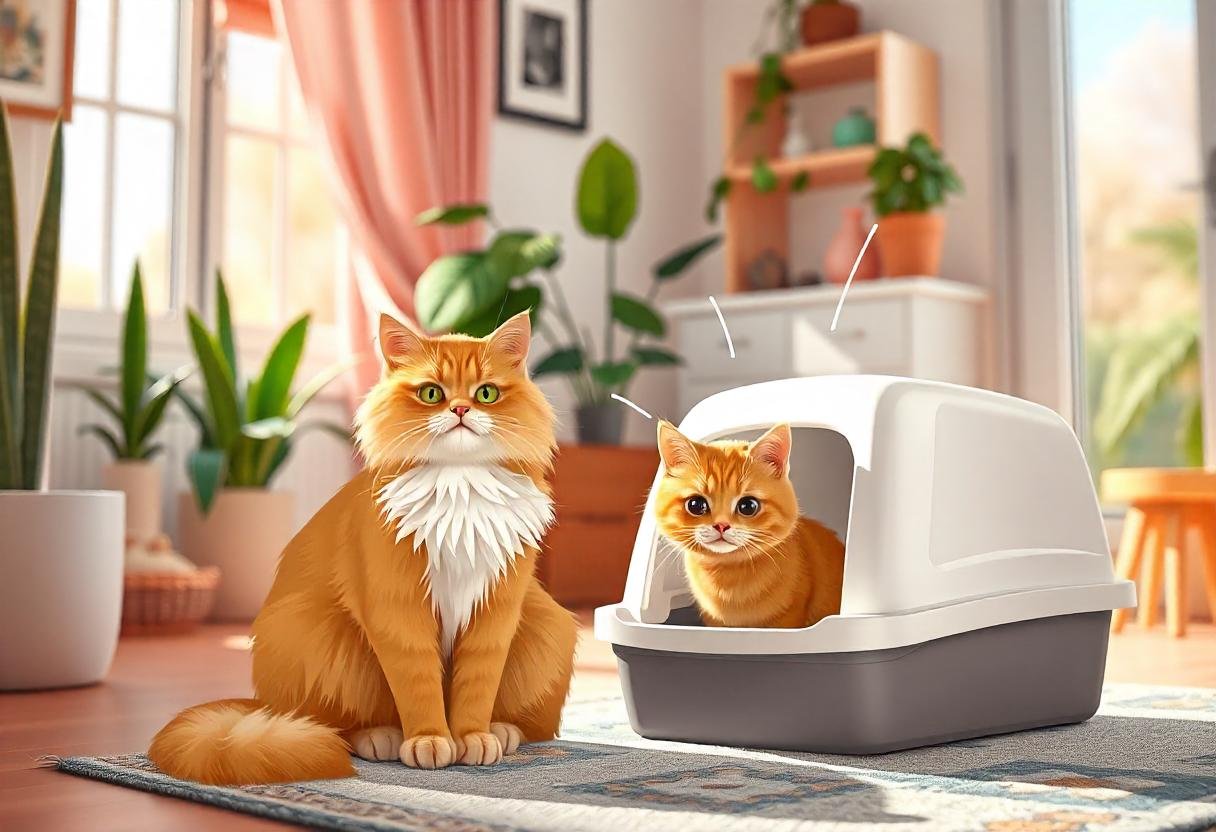Every cat owner knows that the litter box is a necessary part of life with a feline friend.
But let’s face it, sometimes that litter box can be a bit… pungent. The question is, why does cat poop smell so bad, and what can you do about it?
The Science Behind the Smell
A cat’s digestive system is designed to break down and absorb nutrients from meat-based foods.
The waste products from this process, which are excreted in the stool, contain a variety of compounds that can give off a strong, unpleasant odor.
What Makes Cat Poop Smell So Bad?
Here are some of the key factors that contribute to the distinctive odor of cat poop:
- Protein: Cats are carnivores, and their diet consists mainly of protein. The breakdown of protein in the digestive system produces sulfur-containing compounds, such as hydrogen sulfide and mercaptans, which are responsible for the strong, offensive smell.
- Bacteria: The intestines of cats are filled with bacteria that help to break down food and absorb nutrients. However, some of these bacteria can produce gases, including methane, hydrogen sulfide, and carbon dioxide, which can contribute to the smell of cat poop.
- Indigestible Components: Cat poop can also contain undigested food components, such as fiber, which can contribute to the odor.
A Case Study: Whiskers’ Stinky Surprise
Whiskers, a 6-year-old Maine Coon, had a history of strong-smelling poop.
His owner, David, described the smell as “unbearable,” and he found himself cleaning the litter box more often than usual to combat the odor.
“It was a real problem,” David says. “I tried different types of litter, but nothing seemed to help. The smell was always so strong.”
David took Whiskers to the vet. The veterinarian checked Whiskers’ stool and found nothing unusual.
The vet recommended a few dietary changes to help reduce the odor.
“The vet suggested I switch to a food that was lower in protein and higher in fiber,” David says. “She also recommended I add a small amount of pumpkin to his food.
I noticed a big difference after making those changes. The smell was much better.”
Why Does Male Cat Poop Smell So Bad?
Male cats often have a stronger odor than female cats. This is because they have anal glands, which release a musky, pungent fluid.
This fluid is used for marking territory and attracting mates.

Why Does Cat Poop Smell So Bad All of a Sudden?
If your cat’s poop has started smelling worse, it could be a sign of:
- Dietary Changes: A change in diet can cause a change in the smell of your cat’s poop.
- Stress: Stress can affect a cat’s digestive system, potentially leading to changes in stool odor.
- Medical Conditions: Some medical conditions can cause a change in stool odor. It’s always a good idea to check with your veterinarian if you notice a sudden change in your cat’s poop, especially if it’s accompanied by other symptoms, such as:
- Diarrhea: Loose stool.
- Vomiting: Forceful expulsion of contents from the stomach.
- Weight Loss: Loss of weight.
- Changes in Appetite: Decreased interest in food.
- Changes in Behavior: Lethargy, hiding, aggression, or changes in personality.
A Case Study: Oliver’s Stinky Mystery
Oliver, a 4-year-old Persian cat, started having a much stronger odor in his poop.
His owner, Jessica, noticed the smell was much worse than usual, and she started cleaning his litter box more frequently.
“It was so strange,” Jessica says. “His litter box always had a scent, but all of a sudden, it was really strong. He seemed to be having more accidents outside the box too.”
Jessica took Oliver to the vet, who examined him and ran blood tests.
The vet suspected that Oliver might have a urinary tract infection (UTI). “The vet explained that UTIs can sometimes affect the digestive system,” Jessica says.
The veterinarian prescribed antibiotics to treat the UTI, and Oliver’s smelly poop and accidents subsided after a few days.
How to Manage Cat Poop Odor
- Choose the Right Litter: The type of litter you use can make a big difference in how your cat’s poop smells. Consider using:
- Clumping Litter: Clumping litter absorbs moisture and helps to contain odor.
- Scented Litter: Scented litter can help to mask odors, but some cats might be sensitive to the scent.
- Scoop the Litter Box Regularly: Scooping the litter box at least once a day, or even more often if you have multiple cats, helps to keep the box clean and control odors.
- Clean the Litter Box Regularly: Wash the litter box with soap and water at least once a month to remove any lingering odors.
- Diet: A balanced diet that is appropriate for your cat’s age and breed can help to improve digestion and reduce the odor of their poop.
- Avoid Food Intolerances: If your cat has a food intolerance, they may have more gas and a stronger odor in their poop. Switch to a limited-ingredient diet that excludes common allergens to see if it makes a difference.
- Stress Management: If your cat is stressed, they may have more digestive problems, including changes in stool odor. Try to create a calming environment for your cat.
- Consult Your Veterinarian: If you notice a sudden or persistent change in your cat’s stool odor, or if it’s accompanied by other symptoms, consult your veterinarian. They can help you determine the underlying cause and recommend a treatment plan.
Conclusion
While a little bit of cat poop odor is to be expected, a persistent or strong fishy odor can indicate a health issue.
By understanding the possible causes and taking steps to manage them, you can help your cat stay healthy and maintain a fresh-smelling home.
